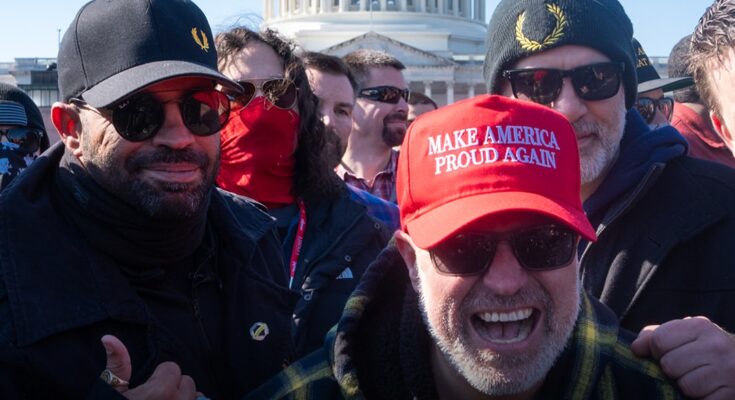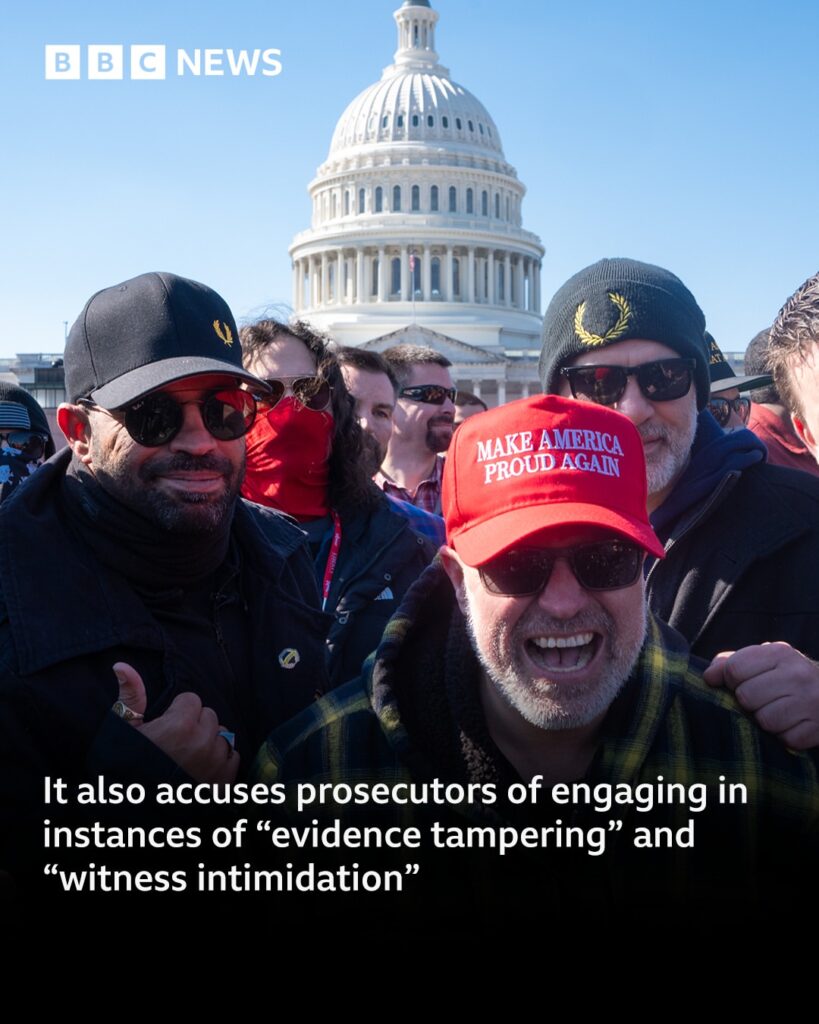
In a surprising legal move that has reignited debate over the January 6 Capitol riot and its aftermath, five prominent members of the far-right extremist group known as the Proud Boys have filed a $100 million lawsuit against the United States government. The men, who were all convicted for their involvement in the insurrection, claim they are victims of political persecution, human rights violations, and abuse of government power.
The plaintiffs in the case are Enrique Tarrio, Ethan Nordean, Joseph Biggs, Zachary Rehl, and Dominic Pezzola—all of whom were central figures in the events leading up to and during the violent attack on the U.S. Capitol on January 6, 2021. Their lawsuit, filed in a federal district court, alleges that the Department of Justice (DOJ), the Federal Bureau of Investigation (FBI), and the Bureau of Prisons (BOP) violated their constitutional rights and inflicted “cruel and unusual punishment” while they were detained and imprisoned.
The Claims in the Lawsuit
At the heart of the lawsuit is the claim that the Proud Boys defendants were treated unfairly because of their political beliefs. They argue that their prosecution and imprisonment were not based solely on their actions, but also on their association with right-wing ideology and their outspoken support of former President Donald Trump.
The plaintiffs allege that their First Amendment rights to free speech and peaceful assembly were violated, claiming that they were criminalized for engaging in political protest. They also assert that their Fifth and Eighth Amendment rights were breached through alleged mistreatment while in custody, including solitary confinement, limited access to legal counsel, and what they describe as “inhumane” prison conditions.
One particularly explosive claim in the filing is the allegation that they were subjected to religious discrimination, including being denied access to religious services and materials. The men argue that the government’s handling of their cases reflects a broader agenda of targeting conservative voices and movements under the guise of national security.
Background on the Convictions
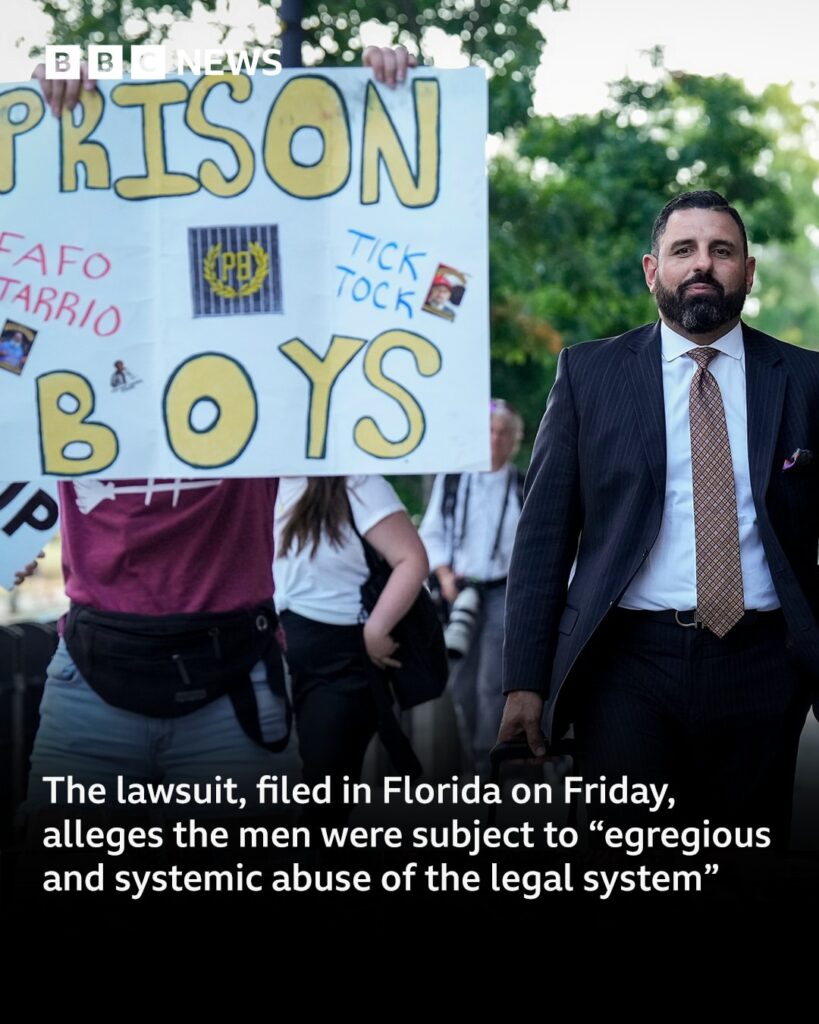
All five plaintiffs were convicted on serious charges relating to the events of January 6, including seditious conspiracy, obstruction of an official proceeding, and assaulting federal officers. The trials revealed detailed planning and coordination among the Proud Boys leadership, as well as their communications and social media activity in the weeks leading up to the Capitol attack.
Enrique Tarrio, the national chairman of the Proud Boys, was sentenced to 22 years in prison despite not being present at the Capitol on January 6. Prosecutors argued he played a key role in orchestrating the group’s actions. The others received similarly long sentences: Ethan Nordean, a regional leader, was sentenced to 18 years; Joseph Biggs to 17 years; Zachary Rehl to 15 years; and Dominic Pezzola to 10 years.
The convictions represented some of the most significant legal outcomes from the Capitol riot investigations, sending a strong message that organized efforts to disrupt democratic institutions would be met with serious consequences.
Government and Legal Response
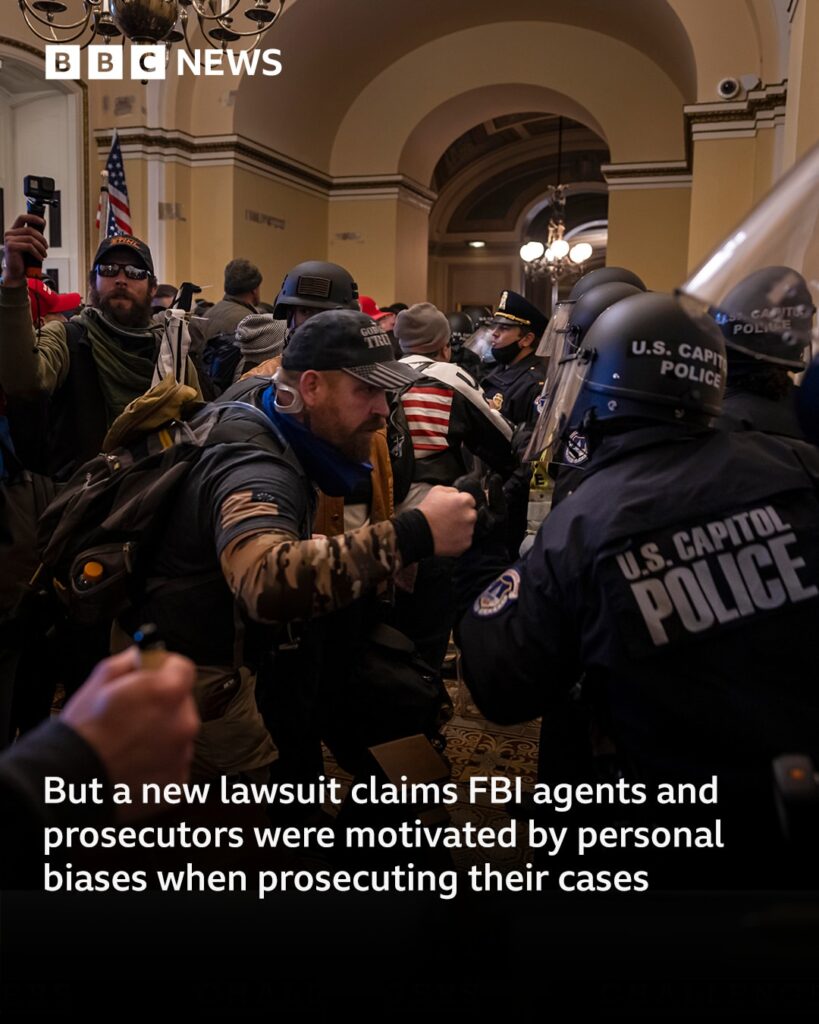
As of now, the Department of Justice has not issued an official response to the lawsuit. Legal experts, however, have expressed skepticism about the merits of the case. Many note that federal courts have upheld the legitimacy of the convictions, which were based on extensive evidence including surveillance footage, text messages, and testimony from former group members.
Civil rights attorneys have pointed out that the U.S. Constitution does not protect speech that incites violence or results in criminal conduct. While the First Amendment guarantees the right to protest, it does not shield individuals from prosecution if their actions threaten public safety or violate federal laws.
Moreover, claims of mistreatment in prison—while serious—would need to be substantiated with clear evidence. The Bureau of Prisons has procedures for handling such complaints internally, and lawsuits of this nature are often difficult to win without strong documentation.
Public Reaction and Political Ramifications
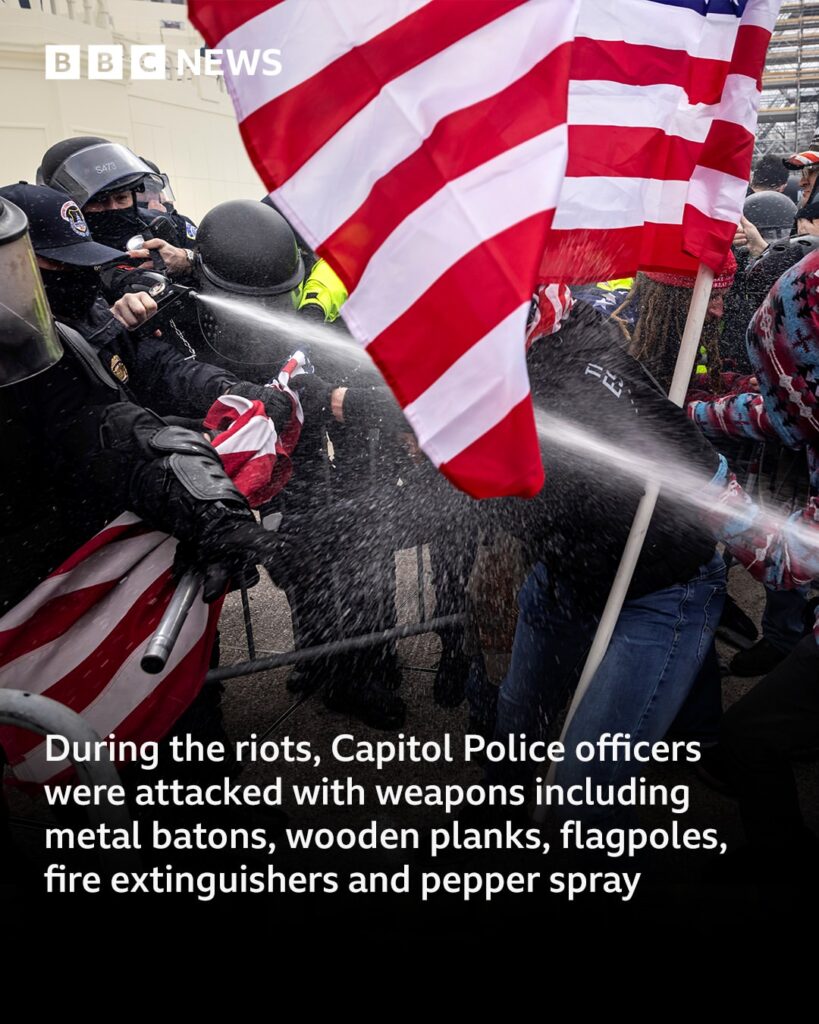
Reactions to the lawsuit have been sharply divided along ideological lines. Many Democrats and mainstream commentators have condemned the filing as a cynical attempt to rewrite history and deflect responsibility for an unprecedented attack on American democracy. They argue that the Proud Boys were rightly held accountable and that their lawsuit undermines the judicial process.
On the other hand, some conservative commentators have rallied behind the plaintiffs, claiming that their punishment was disproportionate and politically motivated. They argue that the federal government has selectively enforced the law, being more aggressive with right-wing figures than with left-wing activists in other protest contexts.
The lawsuit also adds to the ongoing political narrative surrounding January 6. For many on the far right, the Capitol riot has been reframed as an act of civil disobedience, rather than an insurrection. This narrative, while widely rejected by courts and investigators, continues to gain traction in certain segments of the media and electorate.
Conclusion
The $100 million lawsuit filed by five convicted Proud Boys leaders is unlikely to succeed in the courts, given the strength of the evidence behind their convictions and the legal standards governing civil claims against the federal government. However, its symbolic importance cannot be ignored. It reflects an ongoing battle over the legacy of January 6, the limits of free speech, and the broader struggle between governmental authority and political extremism in a deeply polarized America.
As the legal system addresses these claims, the case will likely become another flashpoint in the nation’s political and cultural divide—raising questions not only about justice and accountability but also about how America defines dissent, loyalty, and the rule of law in the 21st century.
